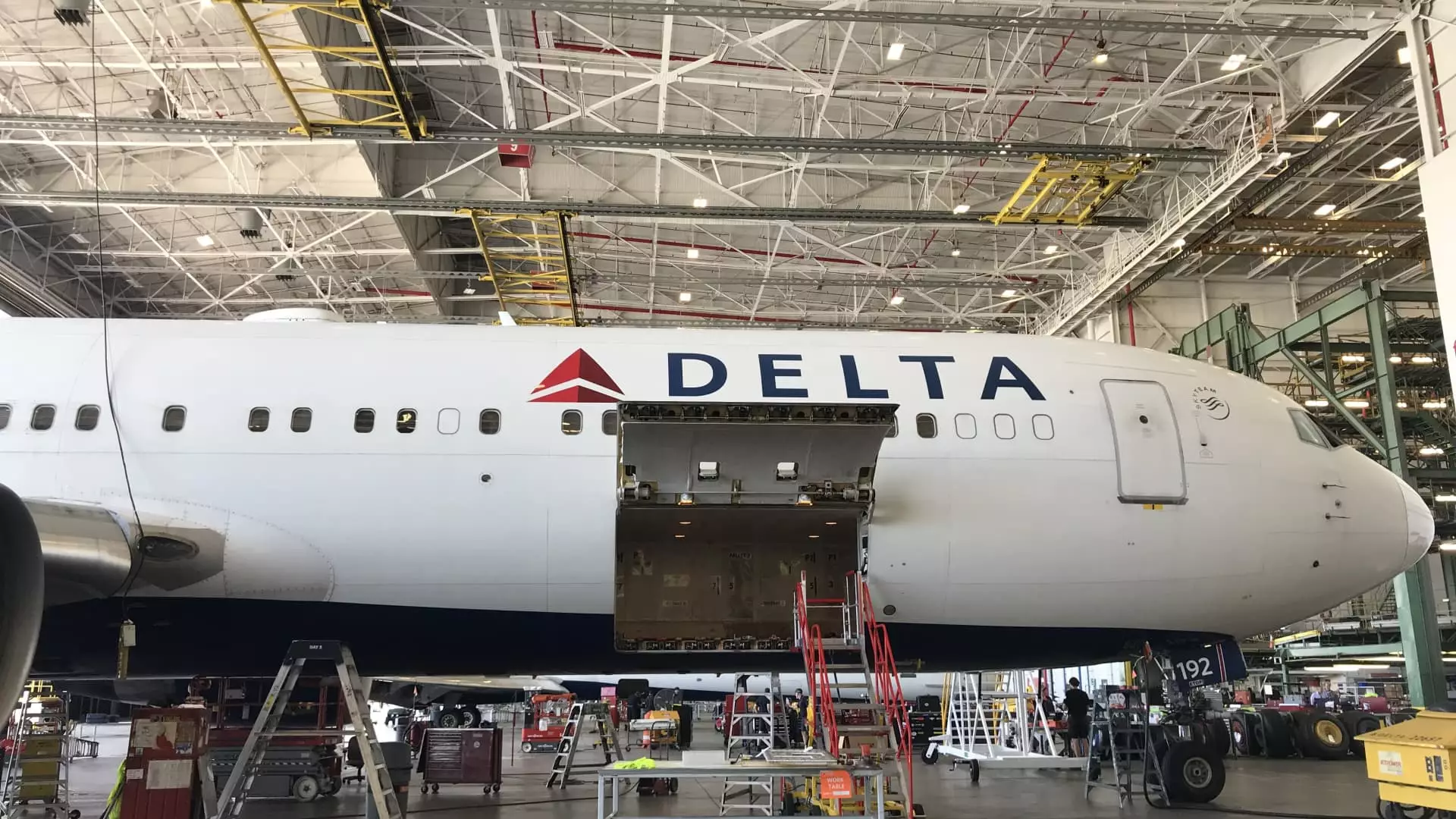As the aviation industry continues to navigate the complexities of a post-pandemic world, Delta Air Lines emerges with promising forecasts for its fourth-quarter earnings. The company’s resilience, bolstered by robust travel demand and a surge in year-end holiday bookings, indicates a strategic adaptation to evolving market conditions. This reflection not only examines Delta’s performance but also highlights the underlying factors influencing its growth trajectory.
Delta Air Lines is projecting its adjusted earnings for the fourth quarter to range between $1.60 and $1.85 per share, a range that outpaces both Wall Street estimates of $1.71 and last year’s adjusted earnings of $1.28. Such optimism stems from an anticipated revenue increase of 2% to 4% compared to the previous year, though analysts had estimated an even larger increase of 4.1%. This discrepancy is important, as it underscores the complexities the airline faces not just in demand, but also in external factors such as the upcoming U.S. presidential election.
CEO Ed Bastian has been candid about the potential for “choppiness” surrounding the election period. History shows that consumer sentiment often fluctuates during such times, impacting discretionary spending and travel decisions. With Delta predicting a potential one-point revenue hit from decreased demand before and after the election, the focus will remain on how consumer behavior aligns with corporate strategies in unpredictable political climates.
Despite its optimistic outlook, Delta is contending with residual effects from a major operational disruption that occurred in July. The airline reported a disappointing earnings per share figure of $1.50, just below the anticipated $1.52. This shortfall was significantly impacted by a CrowdStrike outage that disrupted Delta’s ability to maintain its operations, resulting in a $380 million hit to revenue and the cancellation of numerous flights. This event serves as a critical reminder of how external technological failures can have profound implications on travel operations and financial outcomes.
In an ongoing pursuit for recuperation, Bastian has asserted that Delta is seeking compensatory measures from both CrowdStrike and Microsoft for the significant losses incurred during the outage. Such legal actions not only reflect a proactive stance but also bring to light the vulnerabilities inherent in contemporary airline operations, particularly around technology reliability.
Despite previous challenges, Delta recorded a commendable 15% increase in net income, totaling $1.27 billion for the quarter ending September 30. Total revenue also experienced a modest rise of 1% to $15.68 billion. Notably, while overall passenger revenue remained consistent year-over-year, premium offerings—including first class—exhibited a strong growth trajectory, indicating a shifting consumer preference toward enhanced travel experiences.
The domestic market remains oversupplied, dampening airfare prices. However, Delta’s leadership has noted that industry supply growth is beginning to stabilize, positioning the airline favorably as it heads into the final quarter of the year and beyond. The planned capacity increase of 3% to 4% signifies Delta’s confidence in sustained travel demand, especially during the critical holiday period.
As Delta Air Lines prepares to close out the year, the forthcoming quarter presents an opportunity to reaffirm its recovery strategy while remaining vigilant to potential headwinds. The airline’s earnings guidance and commitment to operational excellence suggest a readiness to adapt amidst external pressures, from political uncertainties to market fluctuations.
Delta’s ability to forecast growth in a turbulent environment showcases not only its operational resilience but also its strategic foresight. Navigating the complexities of the airline industry requires a precarious balance of optimism and caution, one that Delta appears to be managing adeptly as it aims to solidify its position in an ever-evolving landscape. The interplay of consumer behavior, operational integrity, and competitive positioning will undoubtedly continue to shape the narrative for Delta as it approaches 2025 and beyond.

